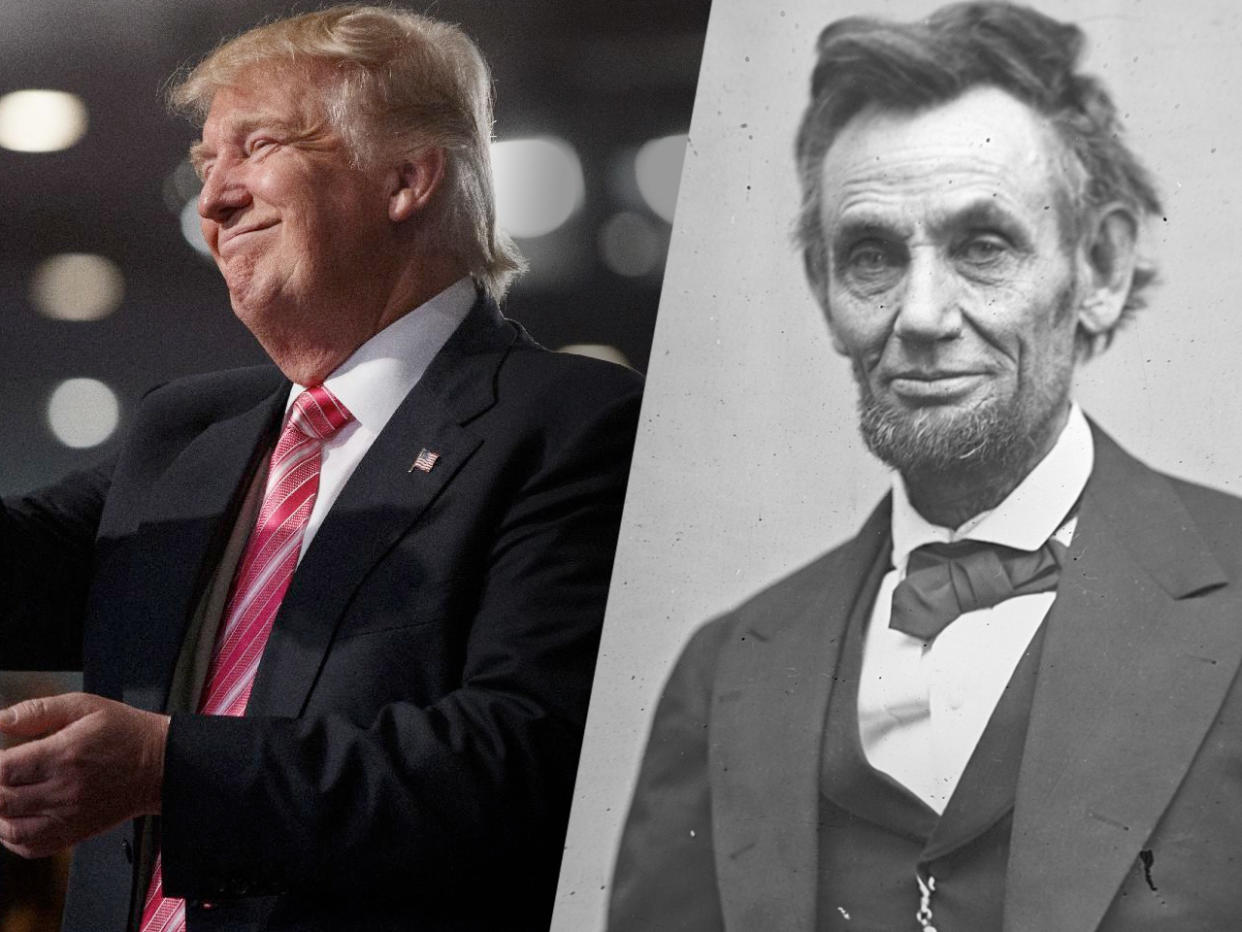Donald Trump cites Lincoln’s GOP in Detroit speech

In his appeal to the black community, Donald Trump invoked Abraham Lincoln’s party affiliation during a highly anticipated but brief speech at Great Faith Ministries International in Detroit.
“Becoming the nominee of the party of Abraham Lincoln — a lot of people don’t realize that Abraham Lincoln, the great Abraham Lincoln, was a Republican — has been the greatest honor of my life,” he told the congregation.
The Republican presidential candidate promised to use the United States’ widely celebrated 16th president as a guiding light in working toward a civil rights agenda for the 21st century.
“It is on his legacy that I hope to build the future of the party, but more important the future of the country and the community,” Trump said during an uncharacteristically calm and mild-mannered speech. “I believe we need a civil rights agenda for our time, one that ensures the rights to a great education — so important — and the right to live in safety and in peace to have a really, really great job, a good-paying job and one that you love to go to every morning.”
Along with Franklin D. Roosevelt and George Washington, Lincoln routinely appears at the top of historical rankings of the nation’s greatest presidents. Lincoln, in particular, resonates in black history because of his successful efforts to end slavery. He liberated more than 3 million slaves by signing the Emancipation Proclamation of 1863 and ultimately abolished slavery by pushing the 13th Amendment through Congress two years later.
Lincoln is also renowned for preserving the Union through the American Civil War. Though the country does not face the same sort of existential threat from within as it had in the 1860s, its political discourse has become more cantankerous in recent years — with the right and left becoming increasingly polarized.
Trump’s brash rhetoric highlights and likely contributes to the widening chasm. His base loves the way he speaks off the cuff, while his ensuing politically incorrect statements further alienate more moderate voters. On Saturday, however, Trump stuck mainly to the prepared script and presented himself as a candidate of unity.
“Our nation is too divided. We talk past each other, not too each other, and those who seek office do not do enough to step into the community and learn what is going on. They don’t know. They have no clue. I’m here today to learn so that we can together remedy injustice in any form.”
Unlike his professed hero, Trump does not enjoy large approval ratings from within the African-American community. A recent NBC-Wall Street Journal poll found that only 1 percent of black Americans support Trump, while 91 percent support his opponent, Democratic candidate Hillary Clinton.
In fact, up until this point, Trump has faced heated criticism for addressing mostly white audiences without reaching out to black voters. Protesters gathered outside the church argued that the candidate’s recent appeal to African-American voters — just two months before the general election — comes a little too late to demonstrate that he actually cares about issues in their community.
At times, the histories of both major parties concerning race have been the subject of intense debates. Liberals tend to say that the Republican Party was once the more progressive organization but that there had been tremendous changes and that it no longer reflects the party of Lincoln. Conservatives, on the other hand, often argue that the Democratic Party has and continues to separate people by race.
Clinton and Trump have repeatedly accused each other of bigotry.


